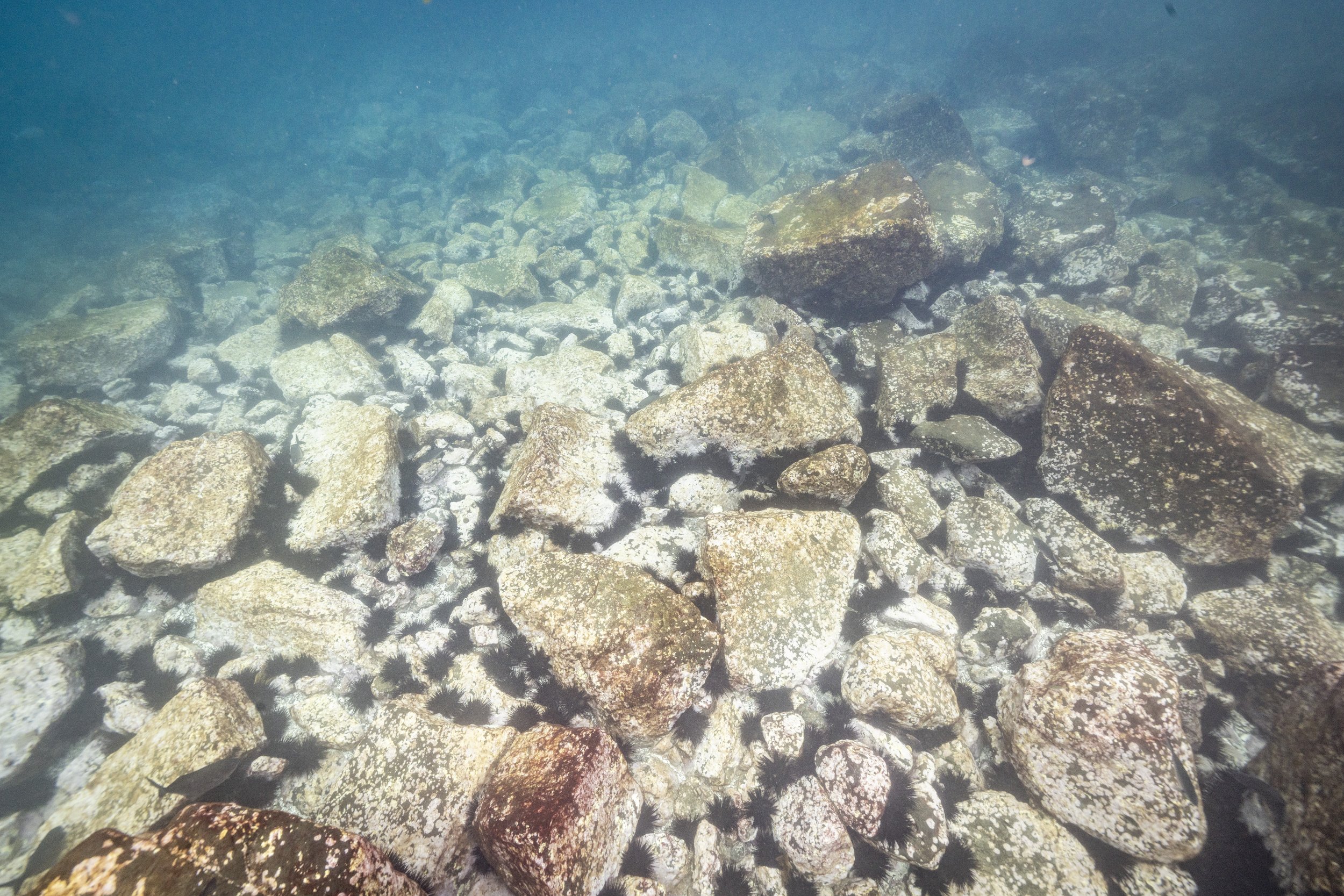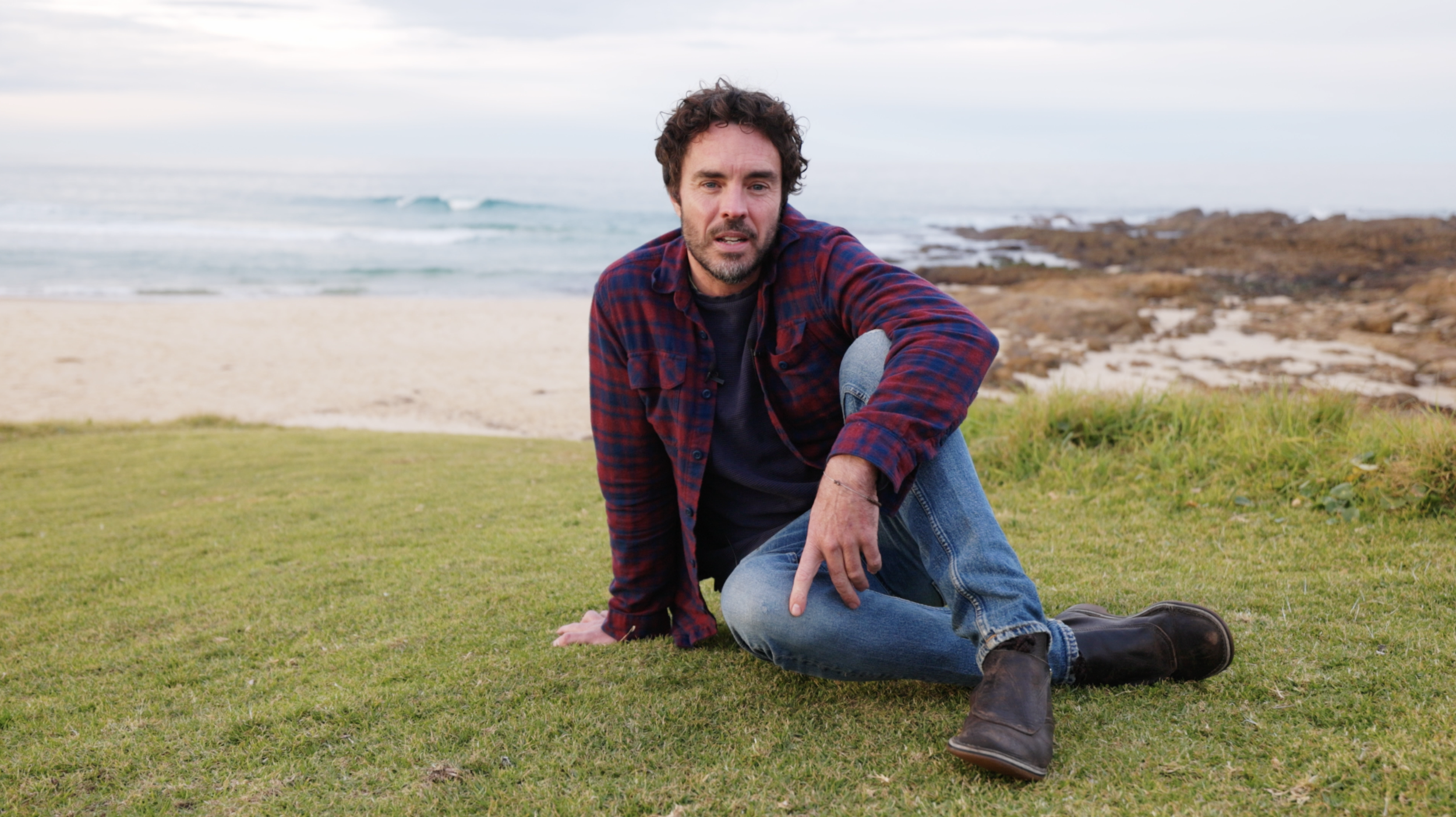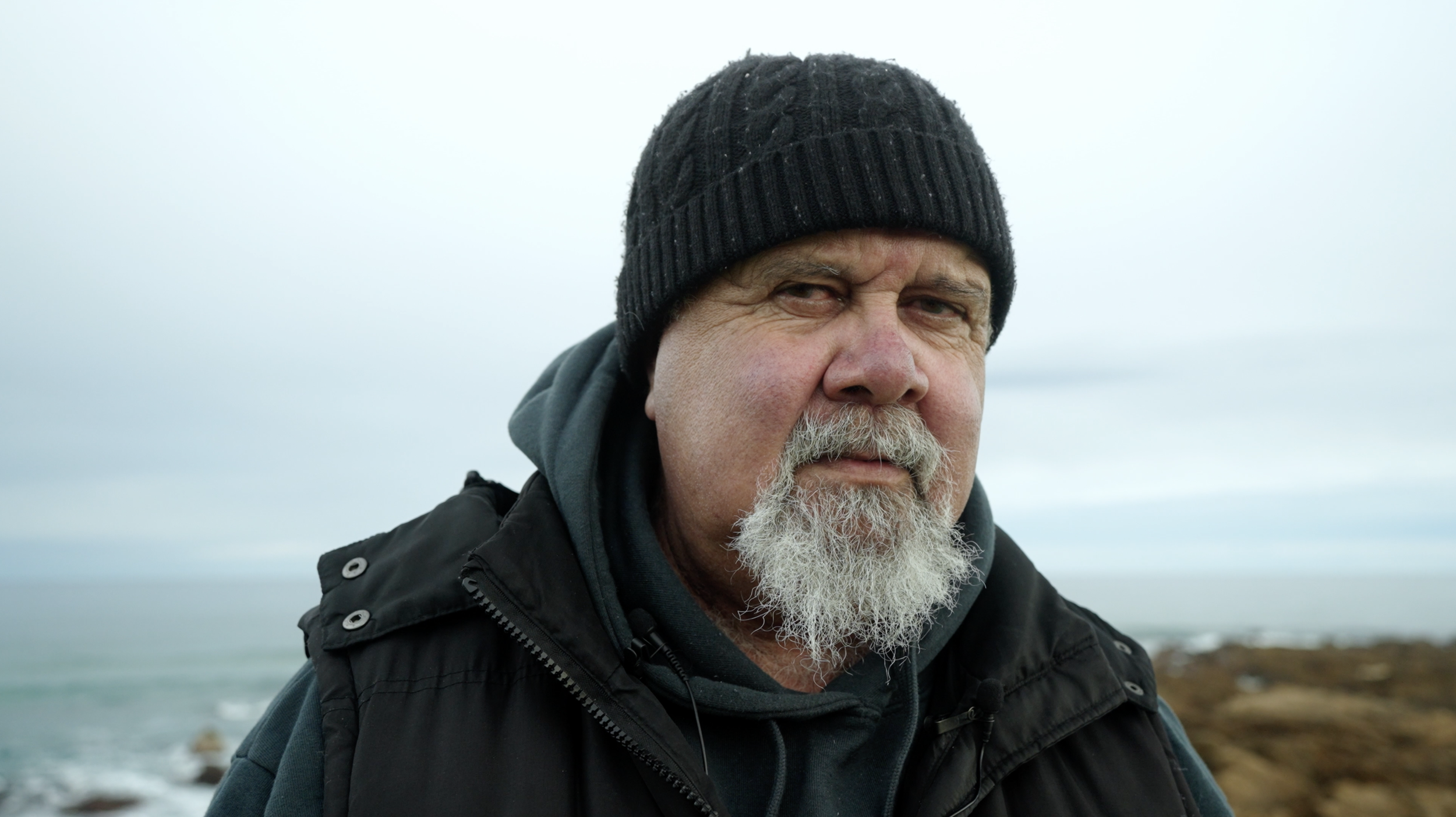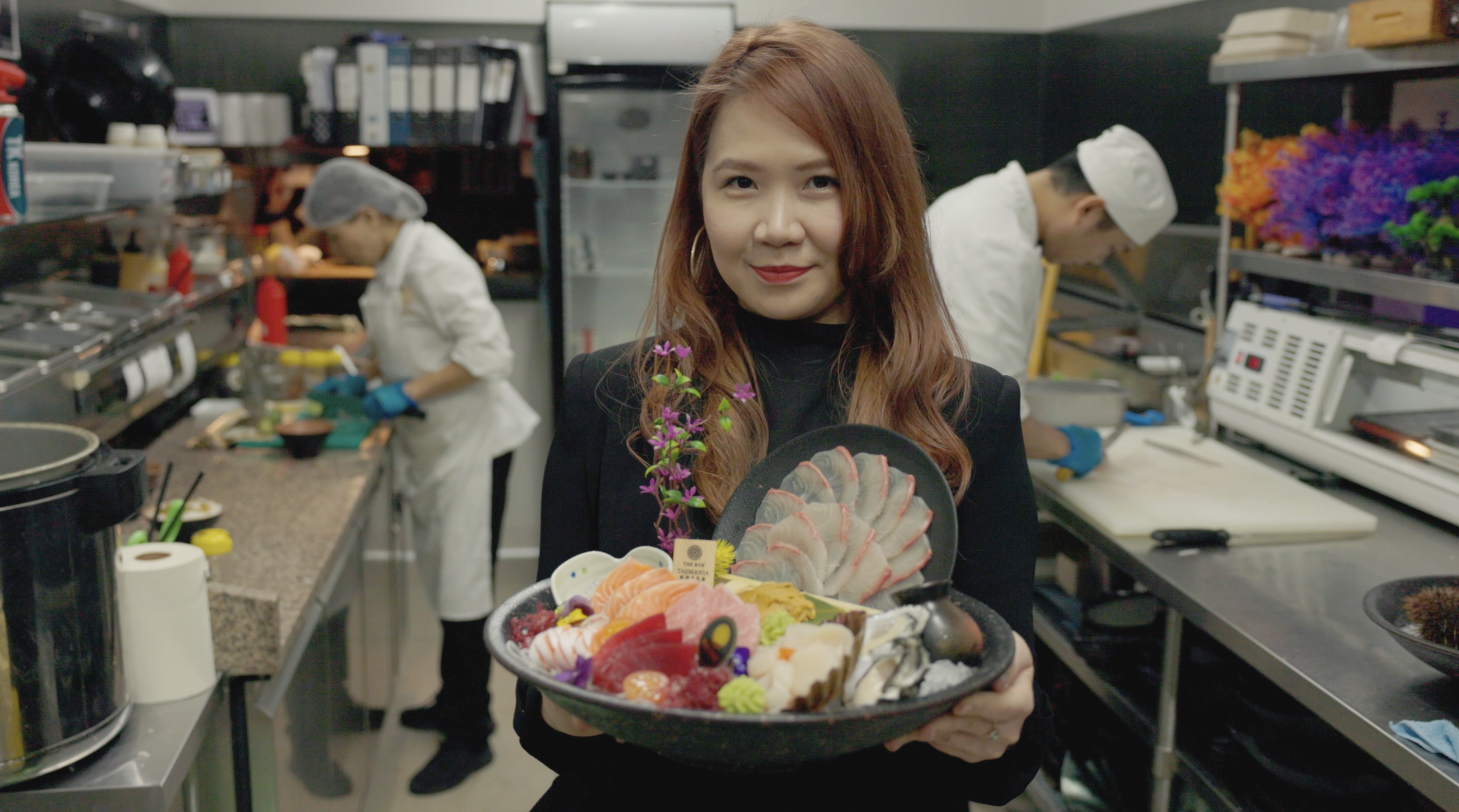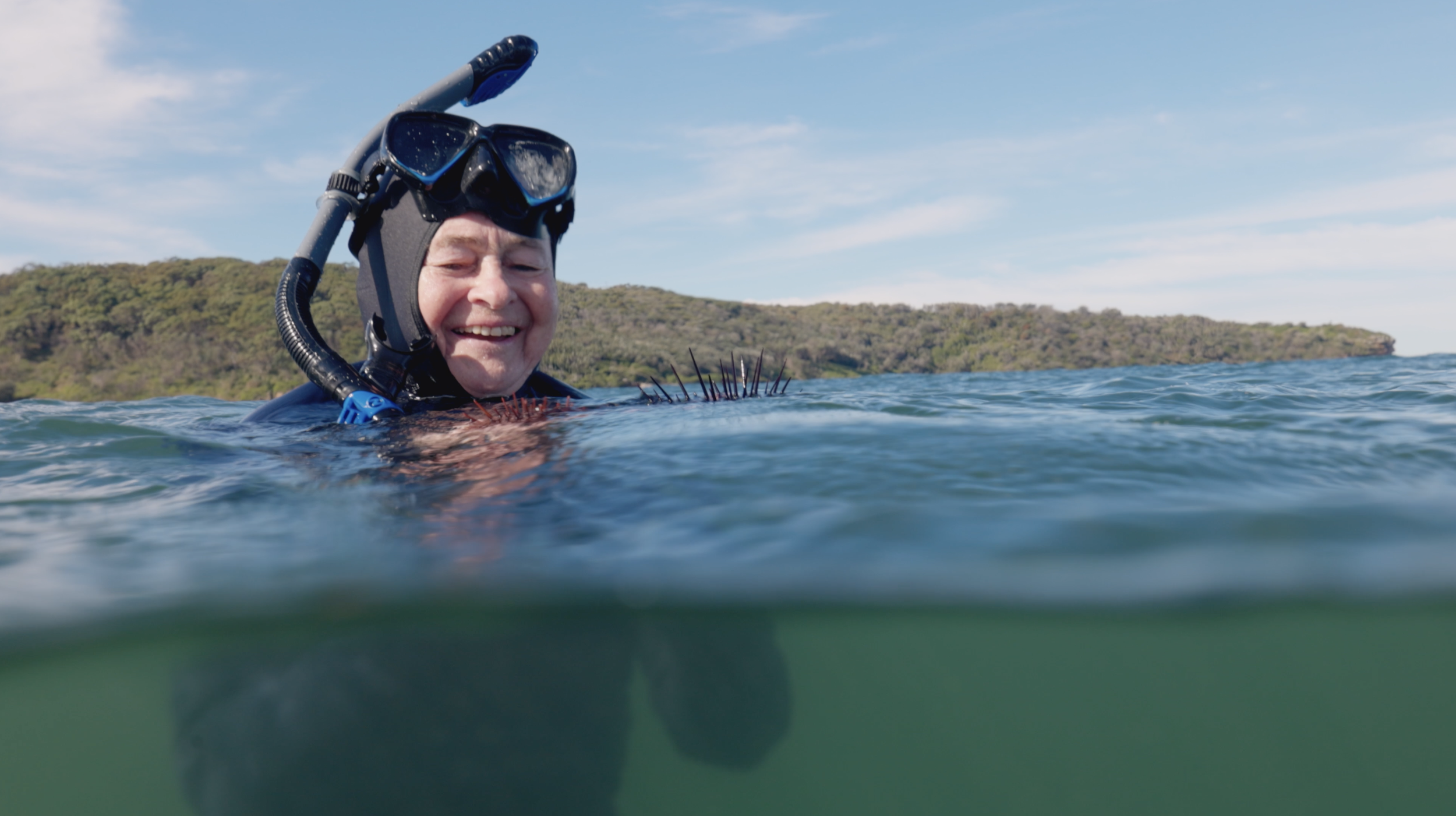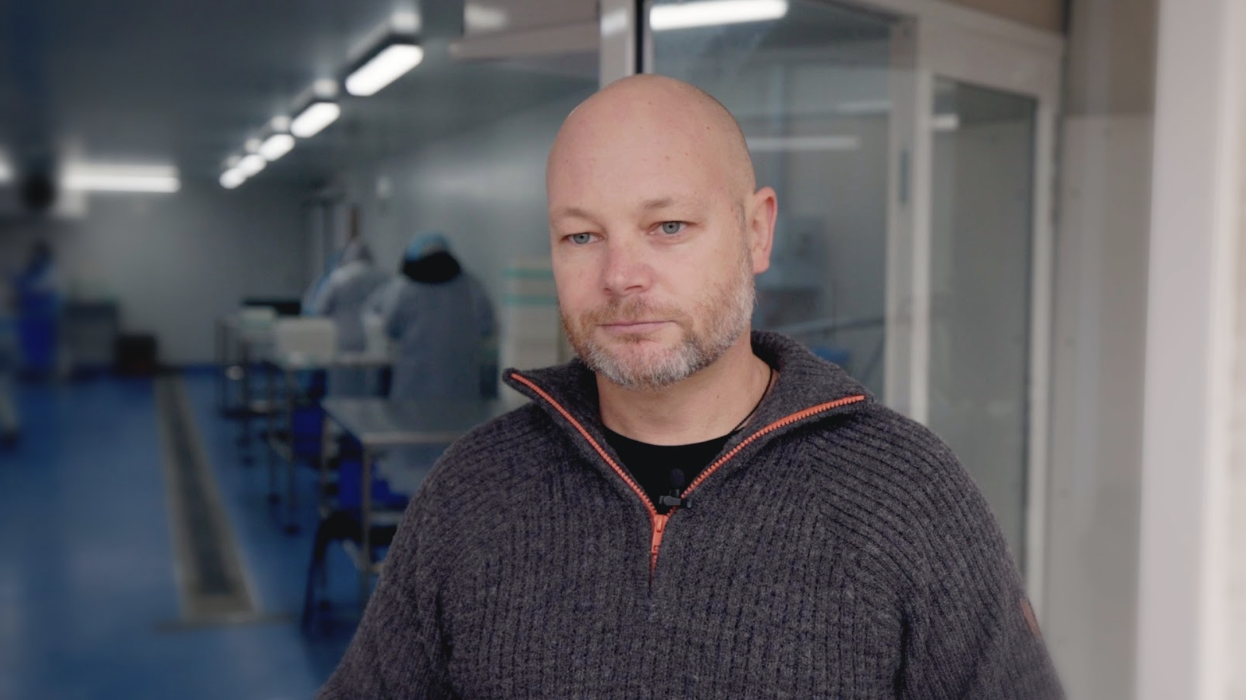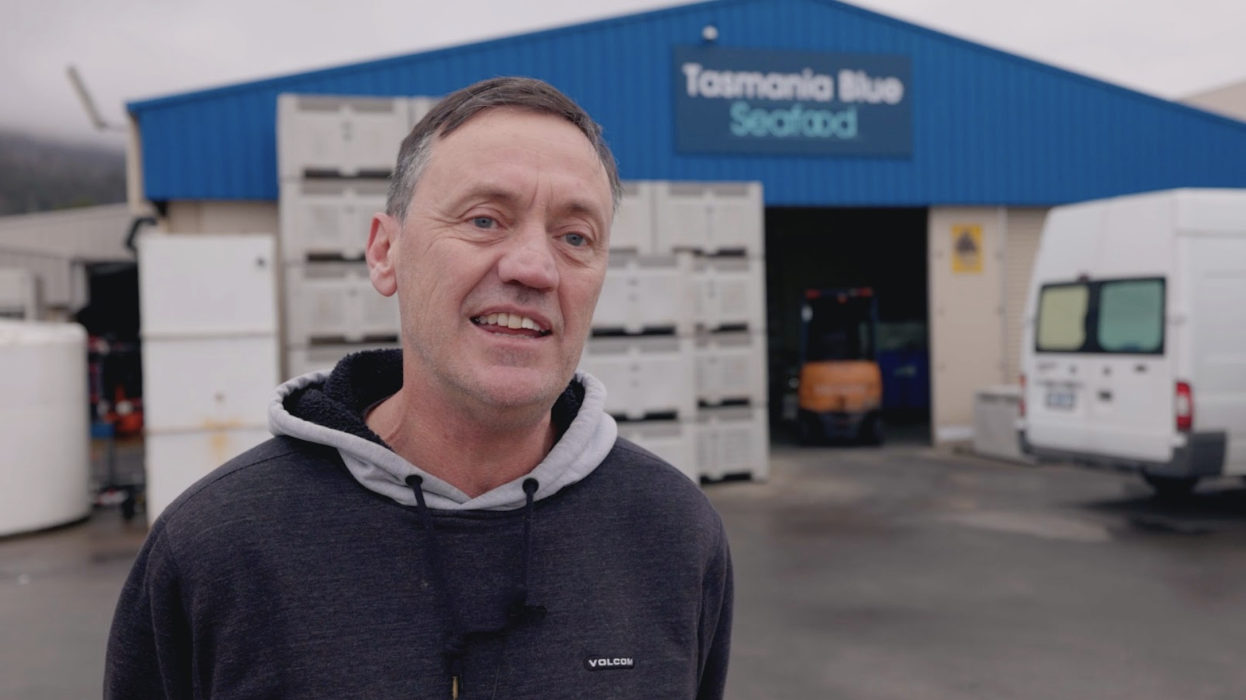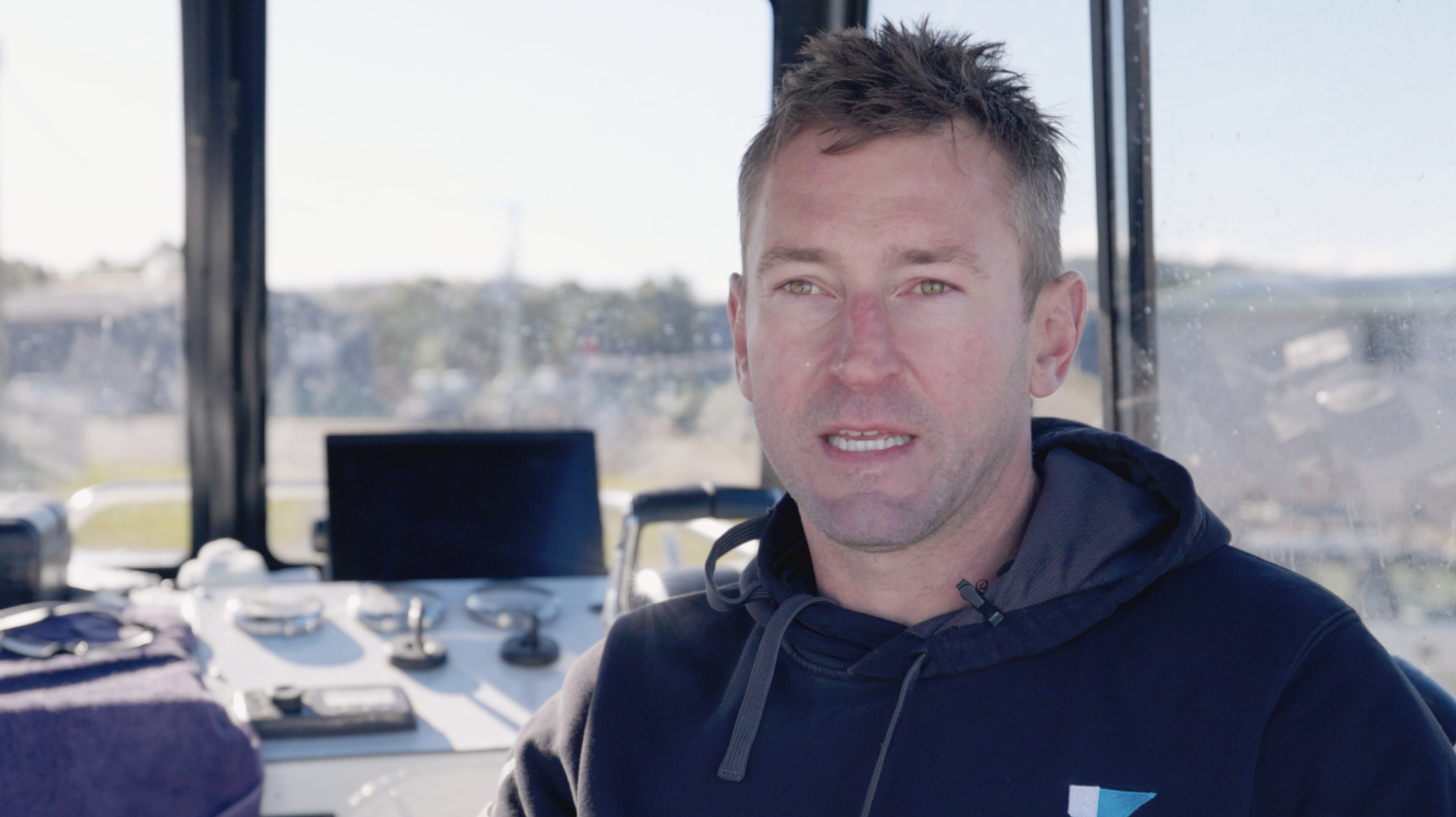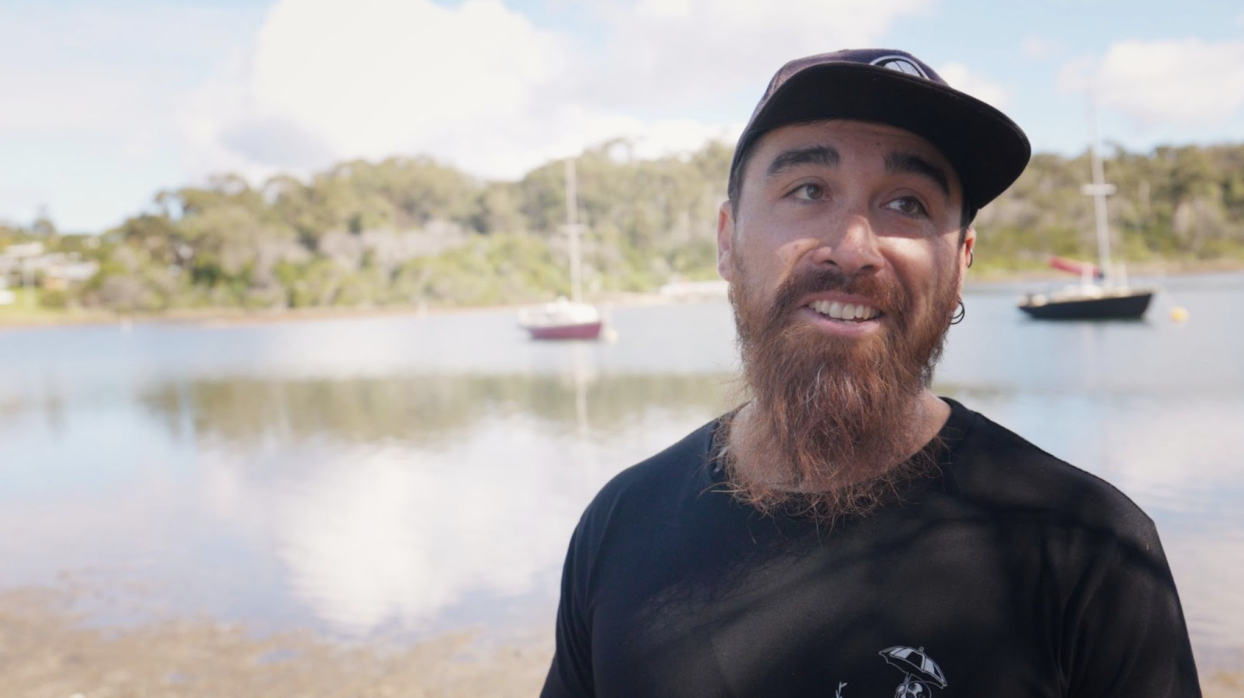White Rock
A Hidden Crisis Gripping Australia’s Underwater Forests
Synopsis
Award-winning director Damon Gameau (Future Council, 2040, That Sugar Film) embarks on a journey to expose a hidden consequence of the climate crisis – the explosion of longspined sea urchins that are devastating Australia’s kelp forests. Weaving together insights from Traditional Owners, firsthand accounts from fishers, and lessons learned from emerging industries, Damon discovers that a solution to this crisis not only exists, but exemplifies how ecological restoration can go hand in hand with economic opportunity – a true-blue, nature positive approach.
production timeline
The White Rock documentary was successfully completed in late 2024, made possible through the incredible support of our valued supporters, partners, community, and significant in-kind contributions.
length
35 minutes.
Key Voices
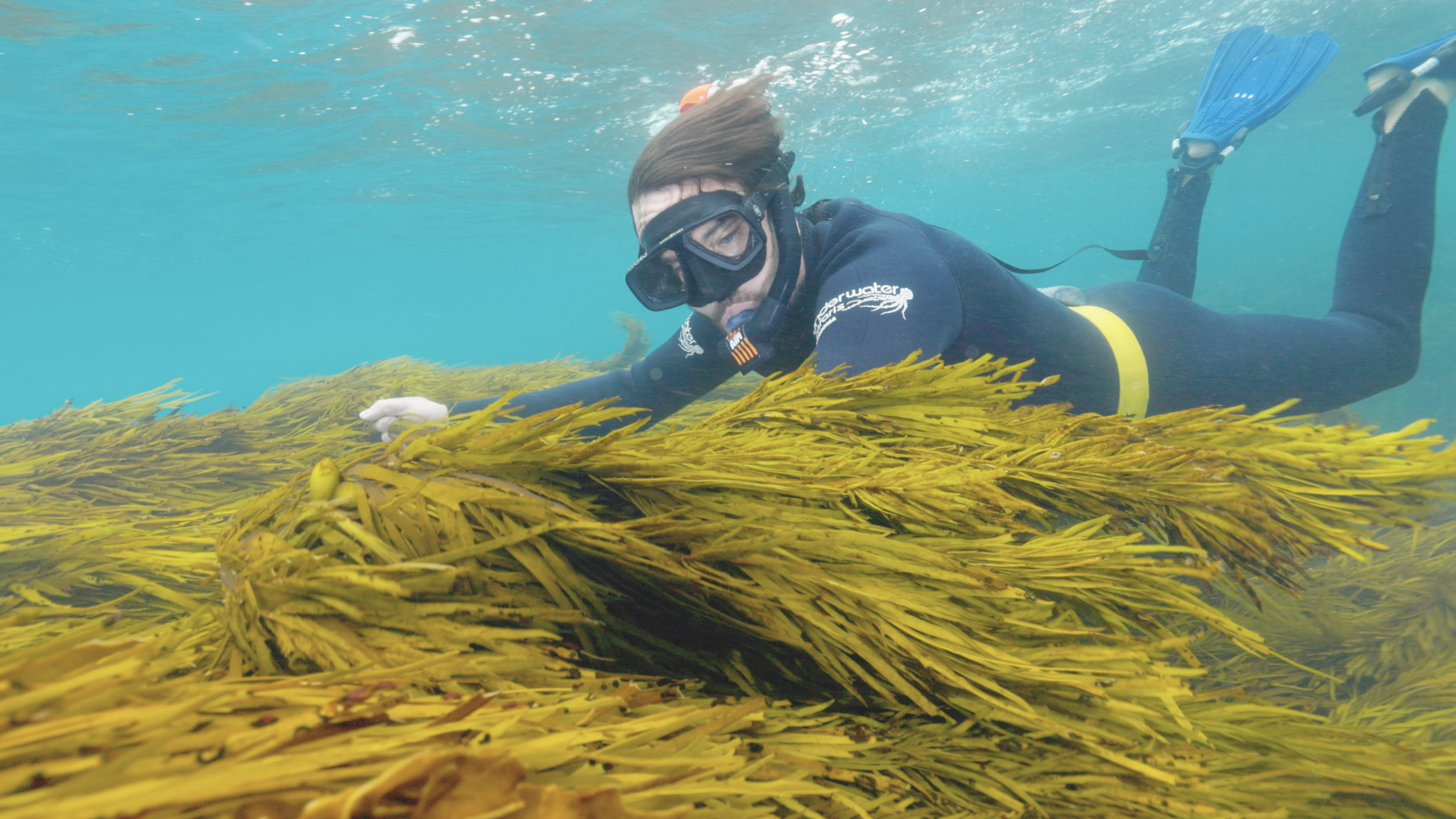
“this feels like a huge opportunity for australia”
Damon Gameau
Impact Campaigner, Filmmaker and Narrator of White Rock
collaborative solutions
Warming oceans have enabled urchins to wreak havoc across 2,000 km of Australia's coastline - an area as big as the Great Barrier Reef.
In response, an unlikely team has formed between fishers, Traditional Owners, investors, environmentalists and scientists, to tackle the problem head-on.
White Rock highlights their innovative efforts, from urchin harvesting and creating new industries to promoting urchins as a high-end culinary delicacy. These pioneering, nature-positive solutions are helping restore ecosystems and address a crisis that threatens marine environments in Australia and across the globe.
Restoring balance
White Rock maps a pathway for change toward ecological sustainability and the return of Australian kelp forests.
The film presents a comprehensive strategy to address the urchin crisis through in-water urchin control, habitat rehabilitation, and support for emerging urchin industries. Traditional Owner insights, alongside contributions from leading scientists and firsthand accounts from fishers, deepen the narrative.
By showcasing the power of collaboration between industries and research sectors, White Rock provides a template for tackling climate-driven impacts in our oceans. It highlights how innovative environmental stewardship can restore marine ecosystems and promote sustainable practices for future generations.
Image: Gergo Rugli about the longspined sea urchin
The longspined sea urchin (Centrostephanus Rodgersii) or just “Centro” is an echinoderm, meaning this animal belongs to a group of marine invertebrates including sea stars and sea cucumbers which all have “spiky skin”. As its name implies, the longspined sea urchin is armed with exceptionally long, black, moveable black spines. Well protected from predators, the spines contain an irritant toxin, which is dispersed when pricked.
Urchin Barrens
Within a balanced ecosystem, the sea urchin must have predators otherwise they can be devastating to their own environments creating what is called an urchin barren, an area where the urchin population grows unchecked resulting in overgrazing of the kelp forest and a loss of biodiversity within the reef habitat. There is a hundredfold drop in primary production when ecosystems go from kelp bed to an urchin barren.
Once an urchin barren is formed, it’s basically there for good. Unlike any other herbivore on Earth when the sea urchins have eaten all the seaweed and there's nothing left, the population is able to survive and carry on living within the barren. The urchins maintain the barrens by switching their diet to feed on the microalgae on the rock, as well as picking up any drift seaweed that happens to be washing across the urchin barren. Many urchin species can even take up amino acids directly from seawater, so they have a broad suite of adaptations to survivorship.
Urchin Commercial Industry
The Senate Inquiry report on Invasive marine species has called for immediate national investment into Centro control. The committee recognises the potential of this emerging fishery to provide substantial employment opportunities.
Tasmania’s commercial Urchin fishery has already made significant strides, removing approximately 500 tonnes per year – that's about 6 million urchins over the last five years! Thanks to the State Government and the Abalone industry's investment, including harvest subsidies, this emerging industry has been given a vital boost. It has created over 100 jobs and invigorated regional communities.
Ongoing research indicates that the fishery is not just halting the spread of urchin barrens but also facilitating the regeneration of kelp habitats in areas with intensive fishing. To effectively control urchin populations and aid kelp restoration, maximising the Centro fishery’s potential is crucial.
IMAS researcher John Keane envisions a strategic approach "Looking ahead, on a national scale I can see fisheries as the centrepiece of urchin control, aided by predator enhancement to increase resilience on healthy reefs, take-all harvests on high value reefs for enhanced control, and select culling on extensive barrens which unfortunately have lost all value".
Centro Task Force
The recently published Senate Inquiry report recommends that the government consider making an immediate national investment into Centro control, guided by the Centro Task Force Plan's action areas and goals.
The Centro Task Force is advocating for an immediate national investment of $55 million over the next five years. This funding is earmarked for research, monitoring, and modelling, as well as for the sustainable and cultural removal and harvesting of Centro, coupled with processing opportunities. It also calls for the development of a coordinated management approach, policy, and communication strategies to combat this urgent threat.
The Centro Task Force has developed a Business Plan to drive a unified national approach to tackling the varying challenges presented by Centro across its range.
The Centro business plan aims to protect, restore, and rehabilitate the health of the GSR, particularly in areas of ecological, economic, and cultural significance. It sets out to manage the impact of Centro on priority reef areas by implementing targeted management programs, monitoring reef recovery and preventing the formation of urchin barrens.
The plan includes four key action areas:
1) Reef Monitoring and Modelling to track changes and management outcomes
2) In-Water Centro Control and Rehabilitation Strategies to manage and restore affected areas,
3) Support for Harvesting and Processing to encourage sustainable industry practices
4) Management of Sea Country to empower Aboriginal stewardship using traditional knowledge.
Success hinges on research and development for informed management, strategic communication and community engagement for stakeholder support, a collaborative national approach involving robust partnerships across sectors, and policy development to facilitate cross-jurisdictional collaboration and effective Centro control.
Investment & partnerships
Directed by Stefan Andrews, White Rock was filmed over the winter of 2024 and is currently in late stages of post-production. This initiative supports the Great Southern Reef Foundation’s mission to enhance the reef's public profile and ensure its prosperity for future generations.
With our impact partners, we aim to tour the film through affected regions along Australia’s east coast, driving both awareness and political pressure to address the crisis.
We are actively seeking partners to join us in maximising the film’s reach through a high-impact media campaign and the creation of an educational toolkit for schools. If you're interested in hosting a film screening or facilitating a way to bring this film to your audience, then please get in touch.
For partnership opportunities please contact us at info@greatsouthernreef.com.
StefaN Andrews
DIrector
Dr. Scott Bennett
Producer
narrator
damon gameau
Minderoo Pictures
The Ian Potter Foundation
The Nature Conservancy
The Jock Clough Marine Foundation
Funding partners
impact support
documentary australia
White Rock is a Documentary Australia Environmental Accelerator project.
